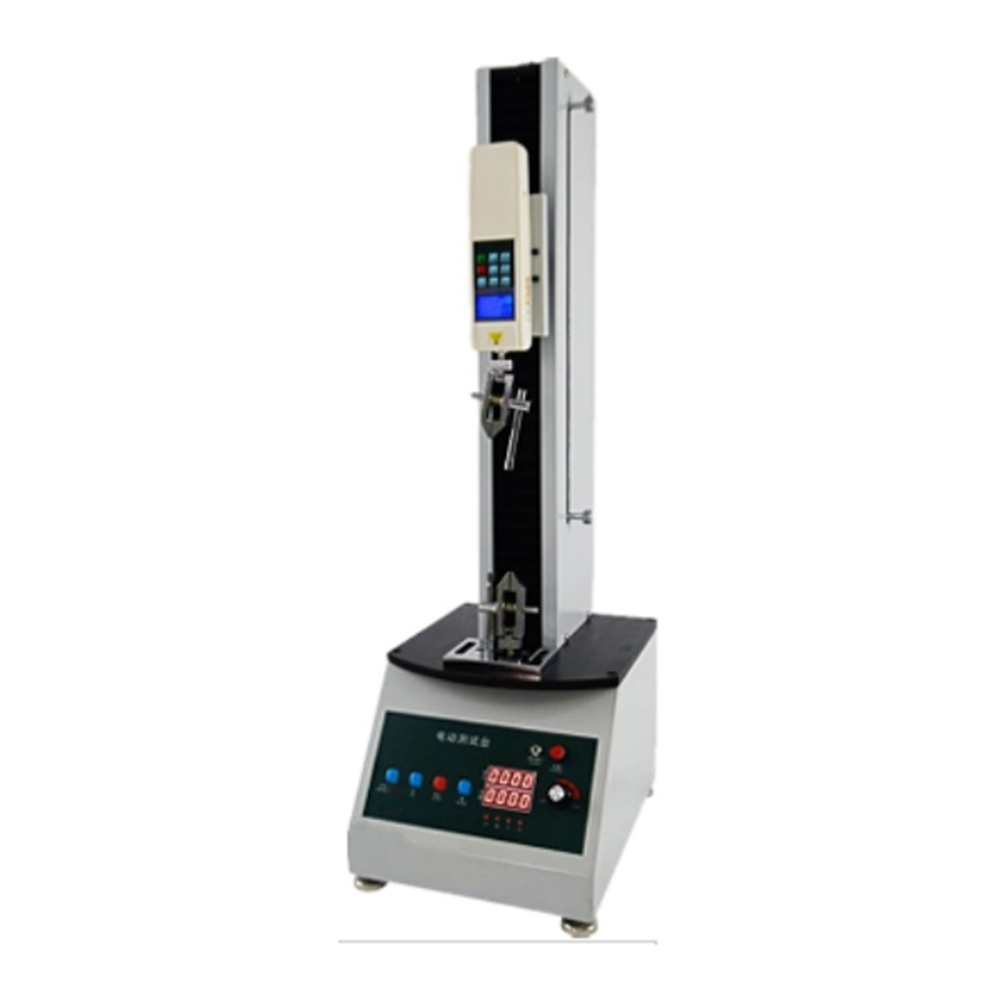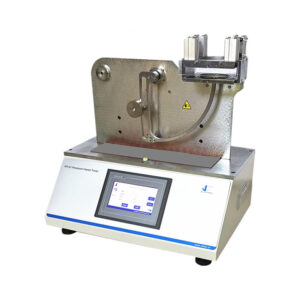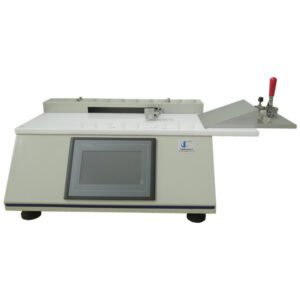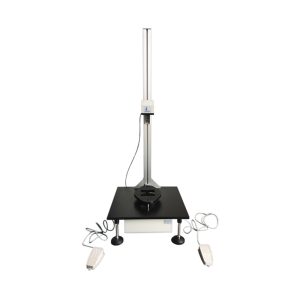Overview of the Vertical Motorized Test Stand
The Vertical Motorized Test Stand (DTS-01) is a high-precision testing instrument designed to deliver reliable and accurate test results for material strength and durability. Built with a sturdy double pole structure, this test stand ensures exceptional stability during testing, making it suitable for demanding applications across various industries. With advanced features like stepless speed regulation and dual control modes—manual (jog) and automatic—this stand is versatile, easy to operate, and adaptable to a range of testing scenarios.
Applications of the Vertical Motorized Test Stand
The DTS-01 Vertical Motorized Test Stand is ideal for a wide array of testing applications, particularly:
- Material Tensile Testing: Specifically designed to support material tensile testing, this stand enables precise measurements of tensile strength, elongation, and elasticity. It provides crucial data on a material’s performance under stress, which is essential for quality control and compliance.
- Other Testing Applications: Beyond tensile testing, the DTS-01 can perform push-pull load tests, plug-in and pull-out force measurements, and damage testing. Its versatility makes it a valuable tool across industries including rubber, plastics, light industrial textiles, building materials, automotive parts, power machinery, and scientific research.
Technical Specifications and Features
The DTS-01 is engineered to provide optimal functionality and ease of use:
- Robust Structure and Stability: With its double pole design and gear transmission system, the test stand maintains stable operation throughout testing procedures, ensuring accuracy and repeatability in results.
- Intuitive Control Functions: The DTS-01 comes with an accessible control panel for easy operation:
- Power Switch: Engages the power, indicated by a light on the counter display.
- Speed Adjustment Knob: Allows for seamless speed control within a range of 60 to 500 mm/min, enabling operators to tailor the test speed based on specific testing requirements.
- UP/STOP/DOWN Buttons: Provides precise movement of the force gauge in either direction, enabling accurate force application.
- Manual/Automatic Switching: Enhances flexibility by allowing operators to choose between manual and automatic control modes, depending on testing needs.
- Customization and Compatibility: Designed to work with a variety of fixtures and force gauges, the DTS-01 can be easily customized to meet specific testing requirements, providing added flexibility for diverse testing scenarios.
Main Parameter
| Maximum Load | 500N | 1000N | ||||
| Effective Stoke | 200mm | 400mm | 700mm | 200mm | 400mm | 700mm |
| Dimension cm | 28*34*78 | 28*34*98 | 28*34*127 | 28*34*127 | 28*34*78 | 28*34*98 |
| Net weight | 38KG | 40KG | 42KG | 42KG | 38KG | 40KG |
| Test speed | 70~270mm/min | |||||
| Power | AC110/220V | |||||
Installation and Mounting Process for the Force Gauge
Installing the force gauge on the DTS-01 is straightforward, ensuring a secure fit for accurate test results. Follow these steps for installation:
- Insert four M6 screws into the designated φ6.2 holes of the fixed block, placing washers in each threaded direction.
- Tighten the screws to attach the force gauge to the mounting plate. The mounting plate offers two sets of mounting holes (30×145 mm and 40×90 mm) for compatibility with various gauge configurations.
Material Tensile Testing: Test Methods and Standards
Material tensile testing is essential for evaluating a material’s strength, elasticity, and overall durability. The DTS-01 Vertical Motorized Test Stand performs tensile testing by applying a precise and controlled force, recording measurements that indicate how a material responds to stretching or pulling forces.
Test Methodology
The tensile test process generally includes preparing the material specimen, attaching it securely to the test stand, applying force through the force gauge, and recording the data. The speed and force applied can be adjusted to suit material specifications, ensuring that the results are accurate and representative of real-world performance.
Relevant Standards
The following ASTM standards are commonly followed in tensile testing, each specifying guidelines for different material types:
- ASTM D638: Standard test method for tensile properties of plastics, detailing procedures for determining tensile strength, elongation, and modulus.
- ASTM D882: Pertains to thin plastic sheeting, outlining methods for evaluating the tensile properties of plastic films and sheets.
- ASTM D412: Specifies testing procedures for rubber and elastomeric materials, including methods for measuring tensile strength, elongation, and stress.
Technical Advantages of the Vertical Motorized Test Stand
- Enhanced Precision and Stability: With features like gear transmission and stepless speed regulation, the DTS-01 delivers high accuracy, supporting stringent testing requirements.
- User-Friendly Operation: Operators can easily switch between manual and automatic modes and adjust the test speed, simplifying the testing process and ensuring flexible control over testing conditions.
Recommended Applications Across Industries
Due to its versatility, the DTS-01 is utilized across numerous sectors, including:
- Packaging and Quality Inspection: Ideal for ensuring product durability and compliance in packaging materials.
- Automotive and Electronics: Used to test components’ strength and flexibility in automotive parts and electronic devices.
- Pharmaceutical and Food: Ensures that materials meet regulatory standards in pharmaceutical and food packaging.
- Textiles and Adhesives: Used in evaluating material performance for textile manufacturing and adhesive products.
Frequently Asked Questions (FAQ)
- What types of tests can the Vertical Motorized Test Stand perform?
The test stand can perform material tensile tests, push-pull load tests, plug-in and pull-out tests, and damage tests across various materials. - How is the speed adjusted on the test stand?
The speed adjustment knob on the control panel allows users to set the movement speed of the force gauge between 60 to 500 mm/min for optimal test conditions. - What industries benefit most from this test stand?
Industries such as packaging, automotive, food, pharmaceuticals, adhesives, and textiles frequently use this stand for quality control and compliance testing. - Is the Vertical Motorized Test Stand compatible with various force gauges?
Yes, the DTS-01 is compatible with a range of force gauges and fixtures, allowing for customization based on testing requirements. - How does the manual/automatic switch function improve testing flexibility?
The manual/automatic switch allows users to choose the control mode best suited to their testing needs, whether precise manual adjustments or automatic, hands-free testing.





